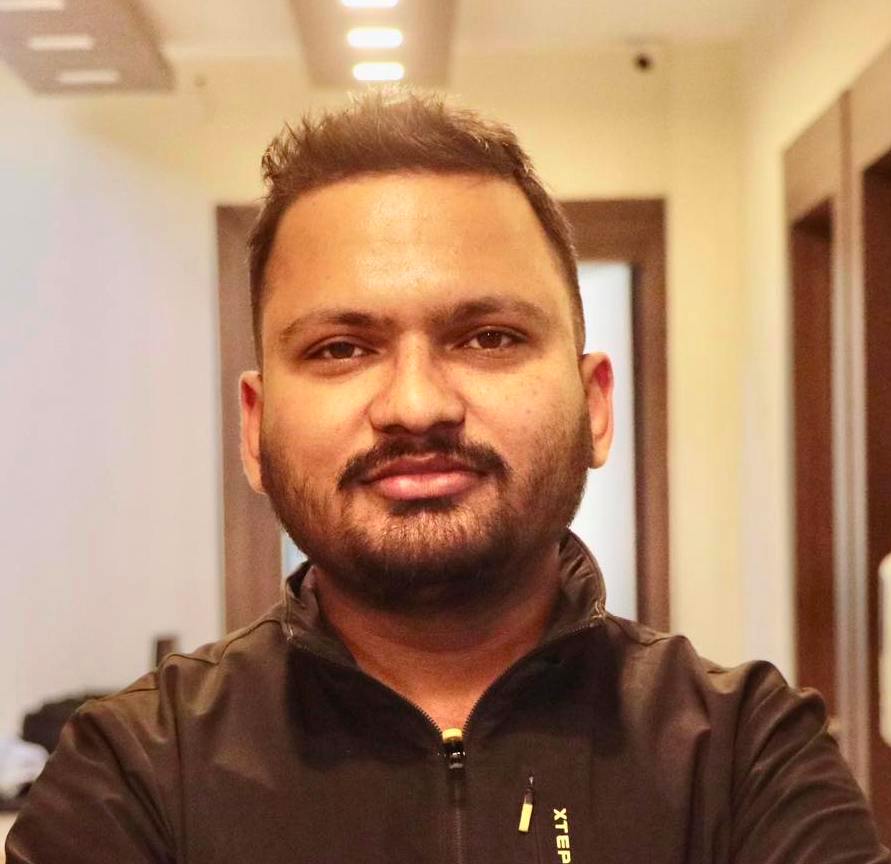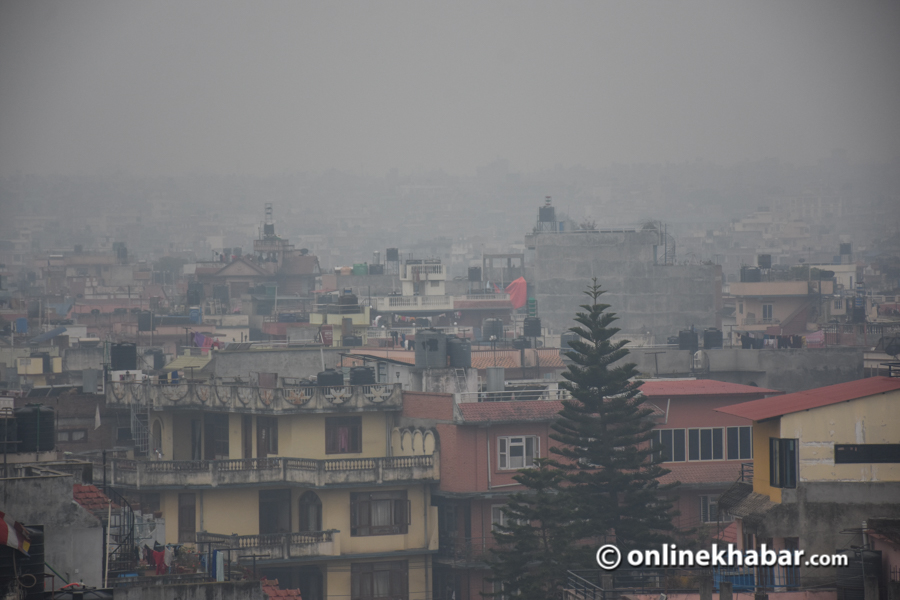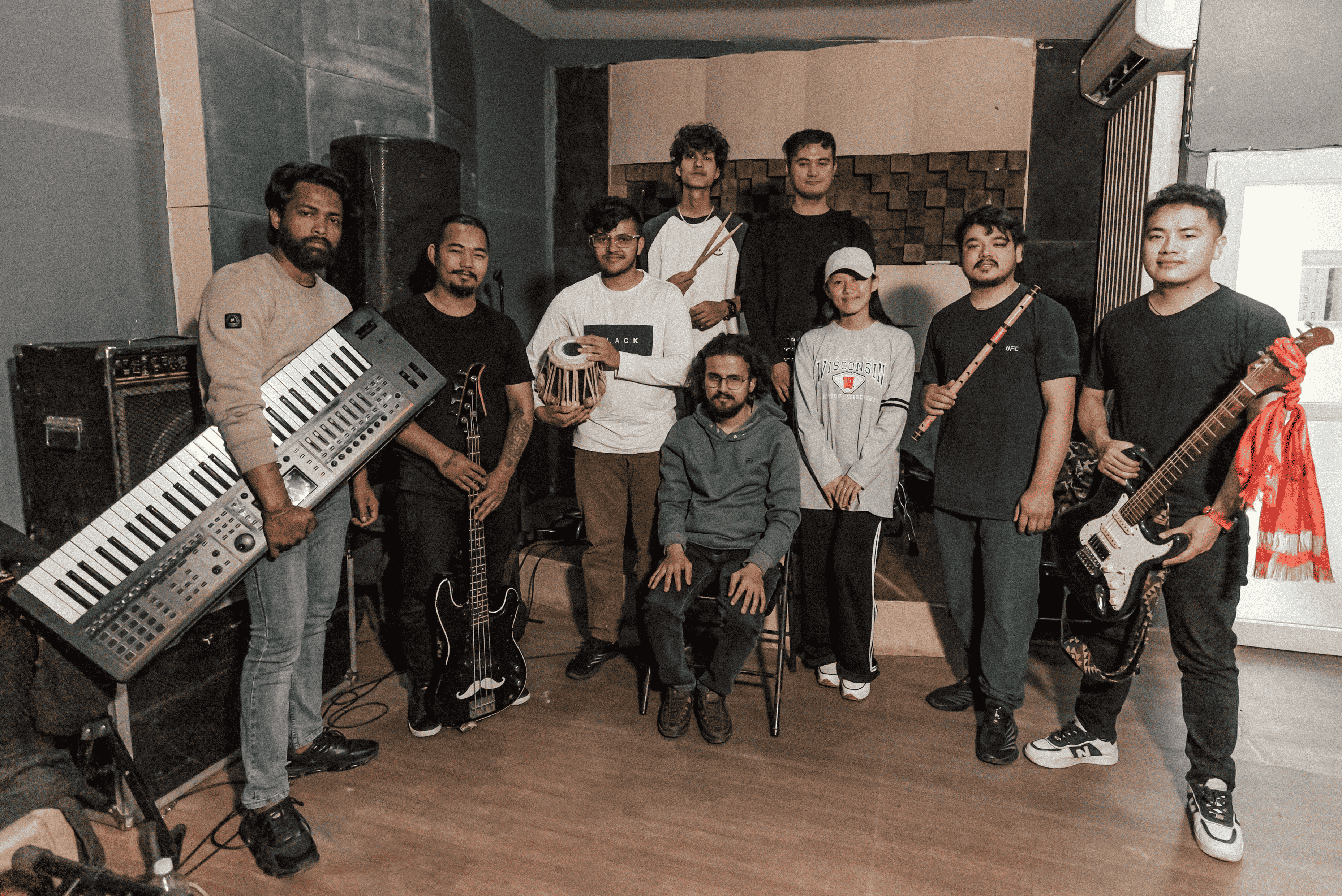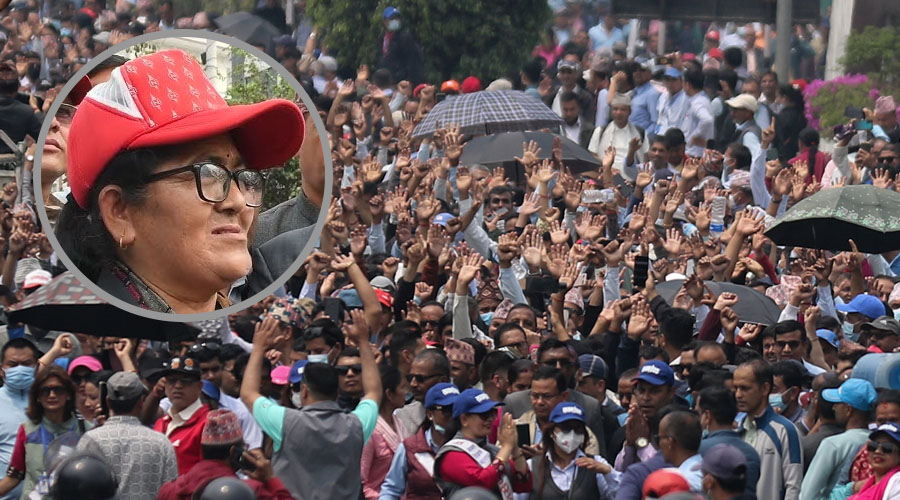
The clapping lasted for a long time in honour of Nigerian footballer Oluwasogo Glory Odeh as his name was announced Man of the Match at the end of Saturday’s (January 25) game in the Pauwadung Gold Cup, Bhojpur. Striker Glory’s outstanding performance led his team to a 3-0 victory over Temkemaiyung Gaupalika’s team.
Everyone seemed happy as the well-deserving player received the award, but at the same time, some cops in civilian dress were keeping their eyes on Glory.
Officers from the District Police Office (DPO), Bhojpur, had been deployed to the ground after receiving a tip-off about Glory violating Nepal’s immigration laws. The Department of Immigration had also sent a letter to the DPO instructing them to arrest Glory and send him to Kathmandu for legal prosecution.
“Our officers were deployed at the playground after we received a letter from the immigration office. But initially, we just had to keep him under surveillance as we needed more documents to arrest him,” a senior officer at Bhojpur recalls. “At first, we didn’t recognise Glory since there were other foreign players. But the Man of the Match award made it easier to identify him.”
It took two more days to arrange the necessary documents for Glory’s arrest. As soon as the police secured an arrest warrant, a team led by a head constable nabbed him from the same playground where everyone had clapped for him.
The unsuccessful escape
On January 20, Glory was watching the match between Kolkata Football Club and Rajgadh Football Club from the audience stands. This time, a few uniformed officers joined the surveillance team. As the game ended, they handcuffed Glory and took him away in a police van numbered Ko 1 Jha 616.
According to the officers, the charges against him were not limited to overstaying his visa.
“Our tip was more than that, so we arrested him and sent him to Kathmandu the same day for further investigation,” an officer at DPO Bhojpur said.
Glory seemed aware of his situation and remained quiet after being arrested. On the 353.8 km journey to Kathmandu, he cooperated until the police van reached Golanjor Gaupalika-7, Sindhuli. At 6:10 a.m., on a foggy morning with slight darkness still lingering, Glory asked the officers to stop the van so he could relieve himself.
When they stopped near Aadheri Bridge, close to the Sunkoshi River, Glory deceived the police and ran into the jungle. The officers tried to stop him, but he punched them and escaped.
According to Gobinda Kafle, SP, Sindhuli Police Chief, they immediately informed the local community about Glory’s escape, providing his description and asking residents to alert the police if they saw him.
“This approach worked. About six to seven hours later, a villager spotted him trying to take a bus,” Kafle tells Onlinekhabar. “Afterward, all highway teams were on high alert to catch him.”
The 25-year-old Glory had boarded a bus heading toward Sarlahi, a district in the Terai bordering India, but he was caught in an ambush set up by the Police Post Gadi.
Afterwards, the Sindhuli police sent him back to Kathmandu for further investigation, which was to be conducted by the Department of Immigration.
Glory, who had played five matches for the Kathmandu-based Sankata Football Club, is now in immigration custody. Alongside his participation in the Martyr’s Memorial A-Division League, he had also played in the Rara Gold Cup, a popular football tournament in Pokhara.
According to Gobinda Rijal, Director General of the Department of Immigration, the Kathmandu District Court has granted permission to keep Glory in custody for five days for further investigation.
“During this time, we will take his statement and probe further details,” Rijal added.
African players in almost every gold cup

In Nepal, football tournaments named “Gold Cup” are hosted in almost every district. Aaha Rara in Pokhara, the Jhapa Gold Cup in the eastern region, Khaptad Gold Cup in Dhangadhi, Simara Gold Cup in Bara, Mai Valley Gold Cup in Ilam, and Tilottama Gold Cup in Butwal are some of the tournaments that draw national attention every year.
Sports leaders, players, and those in authority sometimes criticise the random use of the “Gold Cup” for every kind of football match. The All Nepal Football Association (ANFA), Nepal’s football governing body, set criteria to classify Gold Cups a few years back, but experts argue that these criteria have not been implemented, calling them unscientific and impractical.
In almost all of these tournaments, the participation of national players is seen. Beyond the departmental teams, clubs like Church Boys, Manang Marsyangdi, Three Star, Jawalakhel Youth Club, Sankata, Machhindra, and Chyasal Youth Club are regular participants in most Gold Cup tournaments.
Every team participating in Gold Cups hosted across districts includes a certain number of foreign players, with African players making up the majority. However, officials from the Department of Immigration reveal that preliminary investigations have shown that many of these players are found violating Nepal’s immigration laws.
According to the officials, Glory’s case is just the beginning of legal action, as the department has a long list of players accused of breaking immigration laws. An immigration officer, speaking on condition of anonymity, revealed that three more players from Nigeria, Ivory Coast, and Cameroon are currently under investigation following Glory’s case.
In the ongoing 24th Madi Gold Cup, a team composed entirely of African players is participating. This team, named Maboya Football Club, claims to hail from Burkina Faso. By including a team of African players, the organisers have labelled the tournament as an International Invitational Football Match. According to sources from the Department of Immigration, the players from this team are also under investigation.
Officials from the department stated that visas for foreign players are granted based on recommendations from ANFA.
“ The ANFA sends recommendations to the National Sports Council, which forwards them to the Ministry of Youth and Sports, and finally, the Home Ministry sends the application to our office,” one official explains.
ANFA specifies the sponsoring club in its recommendation letter, which means the player is only authorized to play for the mentioned club.
“Since we issue working visas based on ANFA’s recommendations, it is also their responsibility to monitor the players’ activities,” the official says.
Suresh Shah, Spokesperson for ANFA, stated that international matches in Nepal typically allow a maximum of six foreign players.
“For Nepal’s National League, a maximum of five foreign players are allowed,” he added. “However, in Gold Cups, some organisers allow two foreign players, while others permit up to four.”
Only a few Gold Cups are organised under ANFA’s affiliation, according to officials. As a result, ANFA has limited information about many district-level tournaments. Foreign players are included in these games to boost tournament exposure, enhance local players’ skills, and provide more practice opportunities. However, questions are being raised about the legality of these players staying in Nepal.
Despite being aware of these issues, ANFA and the National Sports Council have taken little action. The immigration department’s records do not include the names of players participating in Gold Cups, which indicates that players who came to Nepal for national leagues are also playing in district-level Gold Cups.
“By law, they should only play for the same club mentioned in their visa application,” an official adds.
The ANFA spokesperson admitted that foreign players who entered Nepal to play in the national league are also participating in Gold Cups held in various districts.
“When we host the league, we check the background and legal status of players using a system called FIFA Connect,” he says. “But district-level organisers lack such mechanisms.”
According to immigration officials, it is illegal for players to freelance for clubs beyond those mentioned in their visa applications. Many African players in Nepal on tourist visas have also been found playing in these tournaments, which is prohibited under Nepali law as tourist visas do not allow any form of work.
Lack of regulation increasing irregularities

The Nepal government endorsed the Foreign Citizens Monitoring Guideline, in 2018 in response to reports of foreigners on tourist visas engaging in various jobs illegally. According to this guideline, foreign nationals holding tourist or family visas are prohibited from working in NGOs, industries, businesses, or any other sector.
Section 20(2) of the guideline explicitly states that foreign nationals can only engage in the specific activities for which their visa was issued. However, the guideline also allows those who entered Nepal on a tourist visa to apply for a different visa category after their tourist visa expires.
“But foreign players (mostly African) often fail to extend their visa period once it expires, and they do not engage in the activities stated in their visa application,” an official from the Department of Immigration said. “In this context, the efforts of our monitoring authorities have not been effective.”
The guideline mandates that any foreign national staying in Nepal for more than 120 days must inform the local police unit, providing details such as their name, passport number, and address. However, this provision has not been effectively implemented.
The guideline also empowers the Chief District Officer (CDO) to monitor the activities of foreign nationals within their district. It stipulates the formation of a district-level monitoring committee led by the CDO and comprising the chief of police, Armed Police Force, National Investigation Department, tourist office, labour office, and other relevant district officials.
The chief of the local immigration office is designated as the member secretary of this committee. According to immigration officials, if this committee operates effectively, many of the irregularities involving foreign nationals could be resolved. The committee is authorised to enter premises, conduct raids, and interrogate individuals where there are suspicions of illegal activities by foreign nationals.
However, immigration officials complain that CDOs are not giving sufficient attention to enforcing these regulations.




















